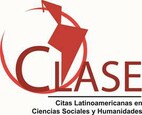American trypanosomiasis and its relationship with domestic dogs: a dilemma between romanticism and health risks in Mexico
Abstract
American trypanosomiasis (ATP) is caused by the parasite Trypanosoma cruzi and is transmitted when the urine or feces of an infected bed bug comes into contact with various mammals, including humans. In Mexico, an estimated 800,000 people are infected with more than 23 million at risk of infection. ATP is found in almost all states, with a predominance in Chiapas, Yucatán, and Quintana Roo. Dogs are one of the main reservoirs of T. cruzi; however, despite public health policies for the elimination and eradication of ATP, the relationship between domestic dogs and humans has been underestimated, because dogs can amplify the disease in endemic countries




































1.png)







1.png)







